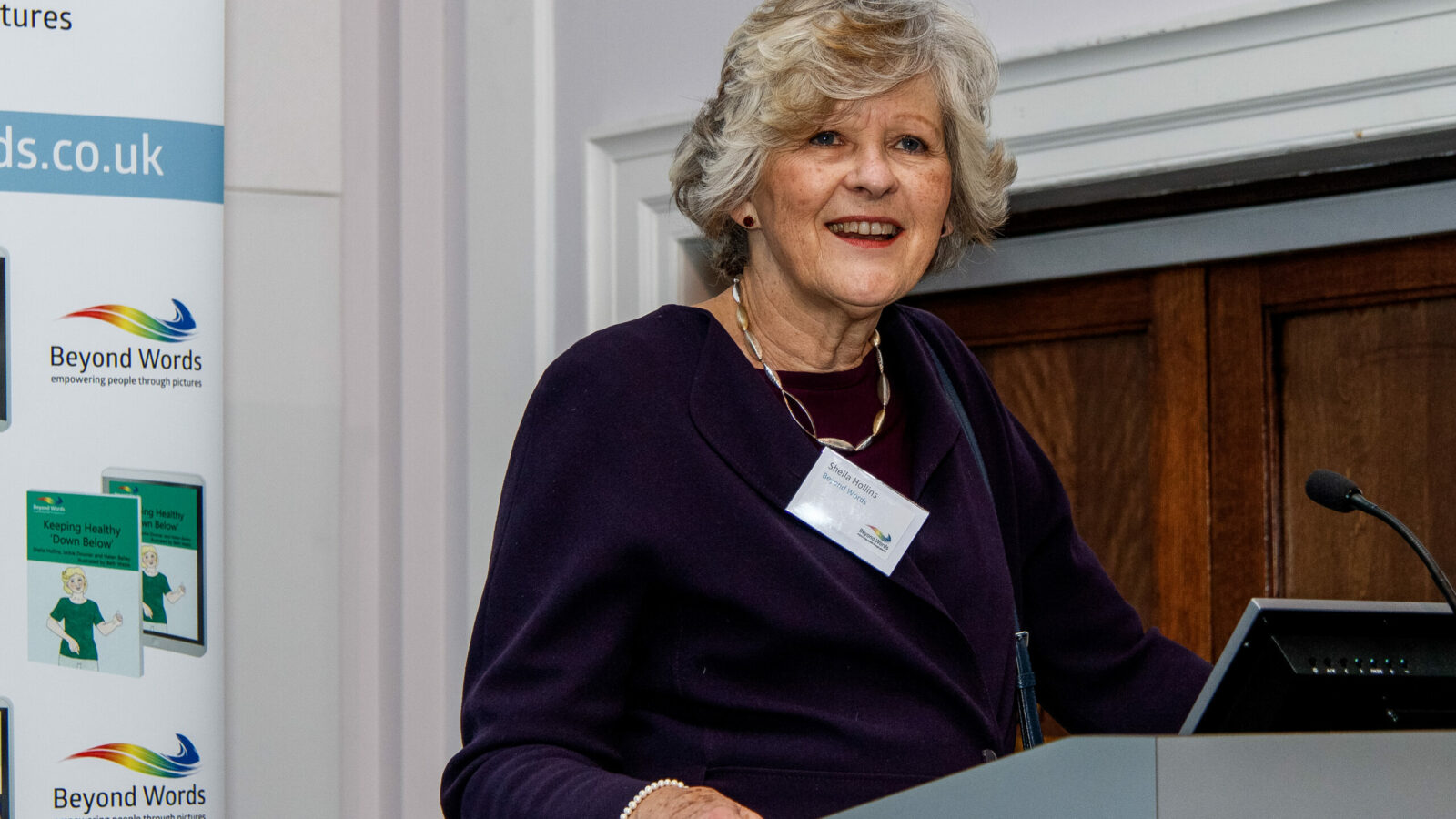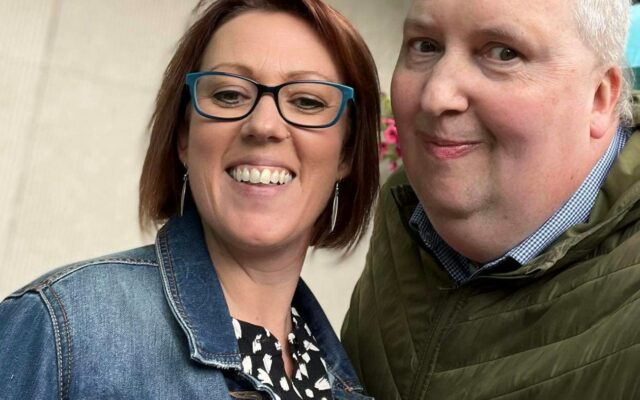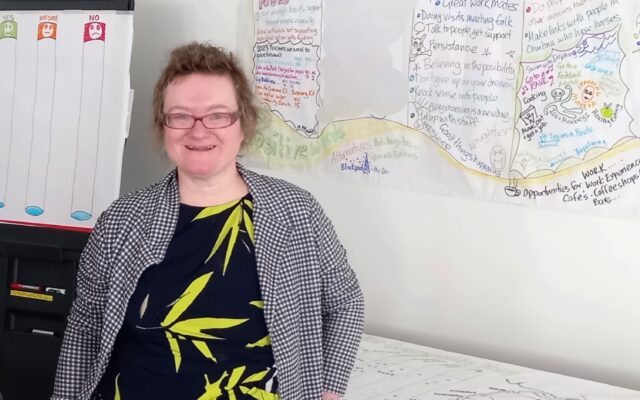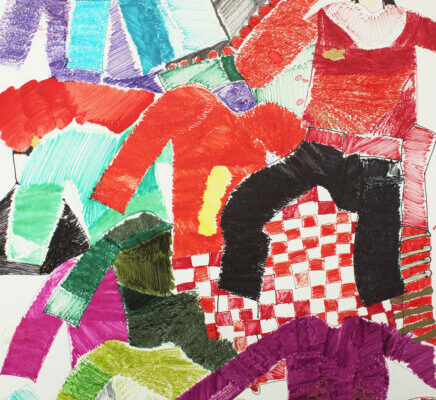Baroness Sheila Hollins is chairing an independent government panel that will oversee case reviews of people with learning disabilities detained in mental health hospitals and assessment and treatment units. This is to support their speedier discharge back into the community.
Before discussing her current work, we looked back over her life and achievements. When Hollins was two years old, her family moved from Wimbledon to Sheffield. She says wryly that her family always sounded “too posh” for Sheffield but they never had quite the right accent for other family members down south. She feels that in her youth she developed a bit of “Yorkshire grit” and resilience which sustained her in later times of adversity.
An early plan to be a nurse was overturned by her biology teacher who suggested she became a doctor instead. “I thought ‘that’s a bit over the top’,” she laughs. Nevertheless, at the age of 16, she applied to St Thomas’ Hospital Medical School in London, which back then in the mid 1960s had a maximum quota of just 12% for women students. The general expectation was that female doctors would soon marry (usually to a male doctor from St Thomas’) then work part time in general practice, she says. She told the interviewers that was her plan – and it must have been the right answer. Despite needing to resit physics – “Science teaching at girls’ schools was appalling. My whole year failed physics. I still hate it!” – she was offered an unconditional place.
But first she took a year out with Voluntary Services Overseas (VSO). She had invited a former Sheffield schoolboy to talk to the Sixth Form Society about his year with VSO in Asia and was inspired: “It just sounded magical.” So Hollins went to work for a year in South Eastern Nigeria in a village in the middle of the rainforest, in what was to become Biafra. Despite being only 18 years old, she became head of science in a girls’ secondary school. And she loved it.
On her return, she went to St Thomas’. But, instead of marrying a GP, she married Martin Hollins, another returned VSO volunteer. Hollins worked 108 hours a week as a house officer after qualifying until two days before her first daughter was born. She then took a part-time GP trainee position in south London for a year.
Routine mental ill-health
It was there she became clearer about the importance of psychiatry. “I was working in Balham and Tooting and about 70% of my patients had social or emotional problems. Patients had 5-minute appointments. The notion that you could actually try and get to the bottom of what somebody is feeling was ridiculous.”
So, after three years, she began training in psychiatry: “I intended to just do it for a bit and go back to general practice, but I loved it.”
Then, she had a son who has learning disabilities and autism. As a medical student, she had learnt nothing about learning disabilities; however, she had some limited personal knowledge from her childhood. The matron of the local mental handicap hospital was a family friend and, as a child, she had often visited the hospital.
She trained in child psychiatry and discovered that child guidance clinic staff would not see a family with a disabled child “because you couldn’t cure the disability so what was the point?” We shake our heads in disbelief. Hollins decided to specialise in families that had a child with a disability, and began consultation sessions with local clinics, schools and hospitals. She was then headhunted by Joan Bicknell (Britain’s first female psychiatry professor and the first professor in psychiatry of mental handicap), who wanted to employ a senior lecturer at St George’s Hospital Medical School to help set up community services.
To attract Hollins, the job included one day a week of child psychiatry. It also included responsibility for 350 patients in two hospitals, a community clinic and undergraduate medical education, plus the university wanted research as well. It was hardly, she says, a “doable job”. Of her child psychiatry day, she says: “I ran a transitions service for the 13-plus group before people really used that word.”
She also involved theatre groups with actors with learning disabilities to teach communication skills. “It led to some nice things like the actors saying about the medical students during feedback: ‘Well, they are quite like normal people, aren’t they?’ And the student group were saying the same about the actors.”
One day, she was asked to see a man who she calls John. John was about 40 years old and had Down’s syndrome. He had no speech. Staff were worried because he had stayed in bed for a month and was not eating. They wanted medication for him. Hollins said: “Oh, poor John. I wonder what’s happened?” It turned out that John’s father, who used to visit every week, had died. We did not need medication for him – we needed to be able to explain to John that his father had died.
Books about death for children were clearly inappropriate. “There were a lot of words, and butterflies and stuff, and they weren’t quite direct enough,” she says. So she got an artist friend to help create a book of pictures. It was called When Dad Died and was the first of more than 60 Books Beyond Words now published by the charity of that name she founded. The books now include a text section to guide staff or others who may be helping someone. “The point about the pictures is that you can invite the person to co-create the story with you,” she explains.
Books Beyond Words has published resources related to Covid-19, many of which can be downloaded freely. They include one about abuse during lockdown called When It’s Not Safe to Stay at Home. Hollins is delighted that Generate in south London and Gr8 Support workers have been using the resources to prompt discussions, for example about death and dying, when calling people with learning disabilities on Zoom during the pandemic.
In 2005, Hollins was appointed as president of the Royal College of Psychiatrists in which role she attended parliament to advise on the Mental Health Act 2007. Then her daughter was stabbed by a stranger in an attack that left her paralysed. The incident was made significantly worse by the behaviour of the tabloid press. “The most appalling things happened,” says Hollins. Extremely intrusive personal details were published, along with completely fabricated stories. The family suspected that phone calls and emails were being intercepted. Photographers camped in shifts outside her daughter’s home for weeks. “What right have they got to do that?” she asks. Hollins gave powerful evidence to the Leveson Inquiry on the practices and ethics of the British press.
House of Lords
In 2010, she was invited to join the House of Lords as a crossbench peer, a baroness. She has become known by many people with learning disabilities, as well as organisations and campaigners, as our friend in the House of Lords. In 2014, she became an adviser to Pope Francis for four years, advising on child protection in the Catholic Church.
Then, in November 2019, she was asked by the government to lead a one-year review of the cases of about 100 people who are detained in long-term segregation in mental health hospitals, including assessment and treatment units (ATUs). “The aim is to stop the use of long-term segregation by making recommendations that will actually improve the care of everybody who goes into an ATU. “If people are autistic, that must be recognised and they must have a sensory plan. If they have any trauma, that must be recognised. They should have the very best treatment possible.”
And their stay should be as short as possible with discharge planned at the start: “If you go in for a foot operation, you think about how you are going to get home again. You don’t go in with an open ticket”. A significant change is the introduction of independent chairs for the independent care, education and treatment reviews (ICETRs) for anybody who is being detained in long-term segregation.
A month after each review, she writes to the local commissioner to find out what has changed: “Did the ICETR lead to a change in momentum or a change in action? Has it galvanised those responsible for admitting someone and for helping that person to be discharged to do anything differently?”
A thematic review of the findings of each review has drawn out common themes and lessons. One early lesson was that not everyone “knew what good looked like”. A “good stories” workshop with self-advocates and others provided great content for a booklet called Helping People Thrive, which was published online by Learning Disability England and BILD, a practical guide on how to transform the lives of people who have been detained for too long.
Once the reviews were complete, Hollins brought the oversight panel together to review the work and, hopefully, by the time this piece is published, they will be close to making some very practical recommendations. She says: “I really hope that the work we are doing will give hope to families.” Focusing on the individual person is paramount: “As soon as you start seeing people as numbers, it becomes problematic. I think we only really understand people by seeing them as individuals.”
Our time is up and Sheila has to go. She offers a summary: “My life has just been one long response to experience and opportunity.” To which I can only say: “That’s far too modest, Baroness Hollins!”
Seán Kelly was chief executive of the Elfrida Society from 2001 to 2012 and is now a writer and photographer





